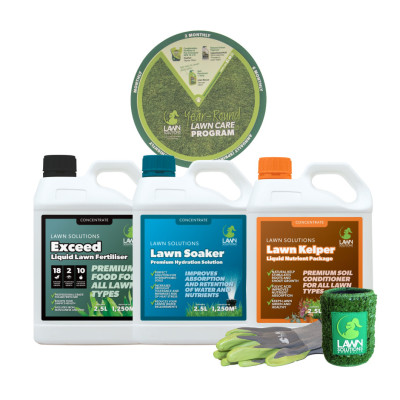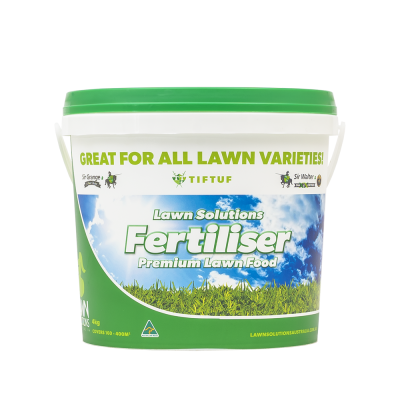As temperatures rise and your lawn starts to green up, there’s a band of notorious outlaws ready to invade—pesky weeds! This spring, keep an eye out for some of the worst offenders: Clover, Creeping Charlie, Creeping Oxalis, Summer Grass, and Cudweed. In this post, we’ll break down the best ways to identify and take down these lawn outlaws before they take over your turf.
Skip to: How do I remove Clover from my lawn? How do I remove Creeping Charlie from my lawn? How do I remove Creeping Oxalis from my lawn? How do I remove summer grass from my lawn? How can I remove Cudweed from my lawn?
How Do I Remove Clover from My Lawn?
Clover is one of the most common weeds that can grow in your lawns. It can be identified by its oval-shaped leaves, which commonly have white circular markings across the group of leaflets. Usually, these leaflets will have three leaves, but four if you’re lucky!
Clover will have low-growing creeping stems that grow roots where they touch the ground. When the weed flowers, it will produce either a white or pink flower, depending on the species.
To remove Clover, the best and easiest way to get it under control is to use a broadleaf herbicide like All Purpose Weed Control.
All Purpose Weed Control is safe for use on most common lawn types.

How Can I Remove Creeping Charlie from My Lawn?
Creeping Charlie, also known as ground ivy, is a weed that belongs to the Lamiaceae family. This family of plants also includes mint, lavender and oregano. Creeping Charlie can be identified by its kidney-shaped leaves with scalloped edges and violet-blue flowers. It has viny stems that can root to the ground at each node.
To remove Creeping Charlie, we recommend using a broadleaf herbicide like All Purpose Weed Control, Estate Herbicide or Bin Die if you have it available. Estate Herbicide 250ml Concentrate has recently been introduced to replace the recently discontinued product Bin Die Concentrate.

What is Creeping Oxalis and How Can I Remove It from My Lawn?
Creeping Oxalis is a weed that is commonly mistaken for clover, due to its similar growth habit of low growing stems underneath the soil surface. Creeping Oxalis will grow in spring and can easily be spotted by its heart shaped leaves.
Creeping Oxalis also tends to spread quickly by seed. Once its seed pod matures and then dries out, it will explode, causing the seed to spread.
To remove Creeping Oxalis from growing in your lawn, we recommend using a broadleaf herbicide. Something like All Purpose Weed Control or Estate Herbicide is ideal for removal.
To help prevent the spread of its seed, we recommend using a pre-emergent herbicide called Oxafert and Oxafert Plus.
These styles of herbicides work by stopping the weed seedlings when they are germinating.

How Do I Remove Summer Grass from My Lawn?
Summer Grass is an annual weed that appears in the warmer months of the year. It has soft, hairy leaves that grow close to the ground in clusters. The grass grows roots at the node, and the sheathes of the leaf are usually purple-tinged in colour at the base. This weed will spread by its seeds, so it is best to target it before the plant produces its seed pod.
If there is only a small amount of Summer Grass growing there, the best and easiest way to remove it is to pull it out by hand. Another effective way to tackle Summer Grass is to treat it with a DSMA-based herbicide. However, it is important to note that these herbicides are not suitable for use on Buffalo or Kikuyu lawns.
If you have had a previous infestation of Summer Grass, we recommend using Oxafert or Barricade to help prevent it from growing this year.
For more information on how to remove Summer Grass from your lawn, please check out our blog here.

How Do I Stop Cudweed from Growing in My Lawn?
Cudweed is another common weed that you might see growing in your lawn over spring. It has flat, shiny, green, glossy leaves in a rosette shape and a white furry underside. As this weed has glossy leaves, it can sometimes make herbicide removal a bit more difficult. A surfactant is often needed to help the herbicide better adhere.
For its removal, we recommend using a broadleaf herbicide. Something like All Purpose Weed Control or Estate Herbicide is ideal.

For more lawn care tips and advice, make sure you check out our other lawn care blogs here, or our YouTube channel here.


